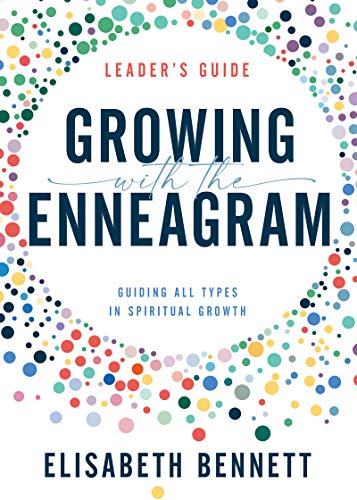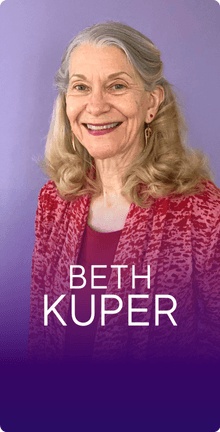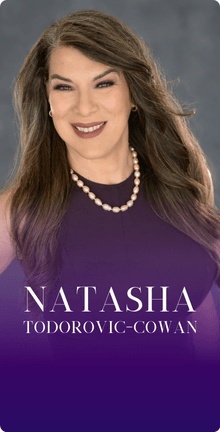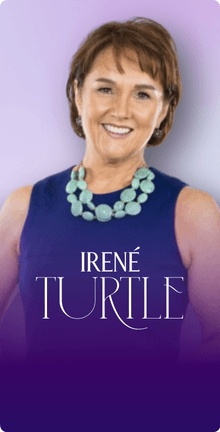In this Episode
- [00:30]Stephan’s guest is Leah Elias, a certified Enneagram coach whose goal is to strengthen every individual, group, and couple’s empathy, trust, teamwork, self-awareness, and more.
- [01:58]How the Enneagram has impacted Leah’s life, leading her to become an Enneagram evangelist and advocate.
- [07:04]How a Type 1 (The Perfectionist) and a Type 4 (The Romantic Individualist) see eye-to-eye through their differences and balance their dynamics.
- [11:05]By understanding the Enneagram, you can be healthier in your current situation.
- [17:16]Stephan emphasizes a truism that you should only take in what you resonate with and discard everything else.
- [28:27]What were the things that shaped Leah the most from living in China?
- [36:10]Your inner critic can be a valuable source of feedback.
- [43:17]What is a panic attack, and how can you handle it?
- [51:14]Stephan describes pain.
- [51:40]Leah talks about the big things she learned from her journey and how she handles it.
- [55:40]The three-step process of overcoming imposter syndrome.
- [57:55]How does Leah’s faith play into her Enneagram coaching practice and toward her client?
- [60:34]How God reflects the best of the nine types of Enneagram.
- [64:00]Do you want to know which Enneagram type you belong to? Visit Leah’s website at Enneagram.studio and get 20% off any services. You can also send her an email at le**@*******am.studio.
Leah, it’s so great to have you on the show.
Thanks so much, Stephan. I’m really glad to be here.
I know that you are passionate about the Enneagram, and I think it’s important for our listeners to understand why you’re so passionate about the Enneagram. What is it about the Enneagram that impacted your life so much that you are a big advocate and evangelist for the Enneagram now?
I’m a recovering perfectionist. I have struggled with wanting high standards and trying to achieve them my whole life, but it was too high. It was hurting me, I was never happy, and I was never satisfied. In addition, it hurt my husband because I was nitpicking him and hurting all my relationships.
I was praying one day. I said, “God, I need help here. I don’t even know how to do this alone. I don’t even know what can be done, but I need to not be like this anymore.” I felt Him say—at that moment, I was listening to a worship song—I will see a victory. I was like, oh my gosh, a victory over perfectionism would be so great.
Then, about two months later, my husband and I got into a huge fight. I hit complete rock bottom, and then I was like, okay, I must want it now. I want to change. I was ready to go. I don’t want to be a perfectionist anymore.
We have both learned so much about ourselves and each other. We have a shared language that we can discuss.
Around that time, my church started offering a class on Enneagram and just learning about personalities, how we’re made, and why we do the things that we do, unlocking everything. God used it to help me understand what I was doing, why, and how I could do something better. It’s been amazing.
What’s happened in your marriage since then?
We have both learned so much about ourselves and each other. We have a shared language that we can discuss. I’m a Type One, the Perfectionist. He’s a Type Four, the Romantic Individualist. They each come with their own superpowers and super weaknesses.
We’ve been able to learn through this language, like, “oh, are you struggling with the Type Four issue of envy right now? Maybe that’s why you’re feeling bad.” “Oh, hey, it looks like your inner critic is coming out, Leah. Do you want to let it calm down? Do you want to be acting that way?”
We’ve been able to be partners in each other’s growth. I don’t even recognize us a month ago from six months ago. We’re growing and different every day, and I am so excited by that.
My wife, Orion, whom you met, tells me when I’m coaching her to stop it. “I don’t need you coaching me. I don’t need your diagnosis. Just listen. Just be present for five minutes.” How do you navigate that?
It sounds very diagnostic to say, “well, you’re a prototypical Type Four right now.” What you’re doing is textbook. It doesn’t feel very good on the receiving end; that’s my experience in my marriage with Orion. I’m curious to hear about that from your perspective.
It’s a great question. There are times, especially at the beginning, when we just wanted to be like, “here’s my problem. I need you to hear it. I don’t want you to solve it because I want to solve it or I don’t know. I don’t understand it enough yet.”
We’ve learned to say, “hey, I’ve got a problem. Can you just hear me out? Can you pray for me?”
We’ve learned to say, “hey, I’ve got a problem. Can you just hear me out? Can you pray for me?” Whatever the thing is, that is not diagnosing. Luckily, my husband likes it. He likes my ability to find the problem in what he’s describing and saying, “isn’t it that? Isn’t it the Type Four thing?”
That releases him from shame or guilt about it, and he goes, “oh, yeah, I am being a Type Four. That is the issue. Now that I know what I’m doing, I know that the answer is to do what a healthy Four would do in this situation. So I’m going to go look that up, and I’m going to do some journaling.”
We’ve built this really intense trust that we both want to be better and are helping each other get better. Whenever we’re concerned, we’re like, “oh, I don’t know, you really poked one of my buttons. Can I trust you right now?” We always go, “I’m so sorry. Let’s back it up.”
We find a way to get back to a really trusting moment. Sometimes, we have to take a break. Sometimes, we’re like, “let’s come back to this in an hour when we’re calmer.” That’s been really great too.
What are the dynamics between a Type One and Type Four? How do Type One and Four relate in a good situation where everyone’s feeling great and everyone’s happy, versus one person being stressed or triggered but not the other? Maybe both are triggered or cranky. Maybe there’s some environmental factor that’s putting a big stressor on everybody. Let’s go through some of that.
At my best as a Type One, I am calm, I’m not agitated, and I can think clearly. I can see the problems in whatever the situation is and offer thoughtful solutions that really have a chance of unlocking the problem or even solving it.
When he’s at his best, he is creative, thoughtful, considerate, and in tune with his emotions which is just a difficult thing, in general, for anyone to do. I think men in our society really struggle with that, so I’m really grateful that he is so strong in that area.
When we’re working together, probably my favorite thing to do is just solve domestic problems. We have a cat, and I cannot figure out how to get his hair to stop sticking to my socks in the washing machine. I’m like, “Okay, Mike, I need you to turn on your creative thing and our problem-solving skills and work through this thing together.”
We don’t quite have a solution to the cat hair yet, but if anyone does, please email me.

I love how you’re crowdsourcing to my listener base.
Everybody’s helpful. You never know who will have the solution. Another Type One, perhaps.
When we’re feeling stressed, it’s usually that one of us has been triggered by our typical issue. For me, it’s feeling like I’m not doing a good enough job. Something inside me is saying, “oh, you really didn’t execute that well,” or somebody’s unhappy with you, and you should feel bad.
One way I react is to get extra critical, as if I could solve it by being extra critical. The laundry isn’t folded, the dishes haven’t been done, and the cat really needs some attention right now. All of these things tend to come out to whoever’s there, which is usually Mike.
When he’s doing well in those moments, he’s able to go, “hey, looks like you’re doing the inner critic thing. How can I help you back down from this?” Then, I’m usually able to go, “oh, that’s so great. One thing that would really help right now is I can’t stand that the dishes have been in the sink for so long. If you could take care of that, that would lift so much of the weight off of me that I would be able to calm down from this.”
We work like that. When it’s switched, and he’s triggered, it’s usually by the Type Fours’ core fear that everybody has something that he doesn’t, a feeling of envy that he’s missing something that other people have. He starts to feel really bad about himself. He’ll comment maybe on something he saw on Twitter. Maybe it’s something somebody said to him that he’s misinterpreting.
If I’m in a good place, then I can say, “hey, this sounds like a Type Four. This sounds like that core fear. What do you need right now at this moment to calm down off of that?”
When we’re both triggered and in a bad mood, one of us either has to be the strong one at the moment, or we have to go take a break.
That’s been really helpful. When we’re both triggered and in a bad mood, one of us either has to be the strong one at the moment, or we have to go take a break. Maybe I need to go for a walk. Maybe he wants to go play guitar. Maybe one of us just needs to sit, talk to God, and ask, what is my problem? I need to feel my feelings and move on from them because I don’t want to hurt my marriage. I don’t want to spew vitriol like I used to. I want to give out love.
If we can work it out together at that moment, we will. If we can’t, we take a break and return to it later.
Why doesn’t everybody use the Enneagram to help build their marriage? If they go to counselors, get couple therapy, and so forth, I imagine that Enneagram isn’t the first thing a therapist will whip out to help stabilize the situation.
Right. Like I was saying at the beginning, I wanted to change, but I didn’t want to do the work yet. When I hit rock bottom, I said, “I want to do the work. Whatever it’s going to take, it needs to be better than this.”
I think people have to really decide, and I want to go on this journey. It’s a little hard and painful, but once you get through the initial thing, it actually becomes really addicting. You start to have a laundry list of habits that you want to get out of and reactions that you don’t want to do anymore.
As you start to work through them and understand why you do it, what Enneagram says, and how you can be a healthier type in this situation, it becomes addicting. It becomes easier and easier.
We’re both at a place now where a flaw pops up, and we go, “oh, man, I can’t believe I just did that. That is not one I have worked on lately. Let me add that to my list.” You help me keep an eye out for when that pops up and lovingly tell me, hey, remember when you said you didn’t want to do that thing anymore? It looks like you’re doing it. What do you need right now?

My dream is for every couple to want to get to that point. I actually started coaching my cousin, Emily, and her new fiancé, Josh. They’re getting married next year. I offered them a coaching package because I saw how much Mike and I grew and wanted them to have the same opportunity.
We had our first session, and it was amazing. What I recognized is they want to do something about it, and they realize that it can be better.
I think people sometimes get stuck and go, “this is just the best that it is.” A couple of months ago, I was over there saying, “yeah, I’m fine. It’s really fine. Life is just hard.” Now, I’m over here saying, “it doesn’t have to be this way. Let me show you how.”
Let’s pick a “flaw” for Type One. Let’s say that it’s avoiding or loathing criticism. That’s one of the Type One traits. Let’s walk through one, realizing that you’re in that place of trying to avoid criticism. Half the battle is just recognition, and then the next step, of course, is addressing and ameliorating it, so you’re not negatively impacting your spouse, colleagues at work, kids, parents, or whoever.
Yes, that was probably one of the first things that I had to work on. Man, I really don’t love criticism.
I’m actually writing my first book right now. I sent it out to my closest friends and said, “Remember, I’m still a Type One. I need you to deliver the feedback very warmly and lovingly while I practice receiving it without panicking.”
Yeah, criticism sandwich.
Yeah. I used to really struggle with feedback. I still do, but I was just telling myself this morning. I still struggle with about 25%. If you’re going to tell me something’s wrong, I’m going to be like, oh, okay, all right, I want to fix it. Before, I couldn’t even be in the same room.
As a Type One, I’m afraid of being wrong.
That’s because, as a Type One, I’m afraid of being wrong. I’m afraid that if you discover that I’m wrong, I lose value in general in your eyes and in the world’s eyes. I was desperately trying to protect my value and self-worth by doing things perfectly so that they couldn’t be criticized or bullying whoever was criticizing me into accepting that whatever I was doing was good and not wrong.
Both of those are terrible ways to live. I was constantly stressed, constantly anxious, nobody could tell me anything, and I couldn’t improve except what happened naturally because I couldn’t take feedback. What really worked for me—and I’m writing this in my book—is it just dawned on me one day, and I totally credit this to God, that I don’t have to listen to the criticism.
Sometimes, it’s going to be really useful, I can listen to it and act on it, and it doesn’t change my self-worth. Sometimes, it’s not useful. Sometimes, the person just doesn’t have the context of what I’m working on or doesn’t have the experience. It’s okay for me to listen politely, thank them, and then not make the change that they’re suggesting. Just realizing that I have the option to say no made it so much easier to listen.
I think I was afraid that I had to listen and that if somebody was criticizing me, I had to make the change, so I was always irritated by that and afraid of it, but when I realized that I could say no, it became so much easier to accept because now I’m not afraid of it. You’re giving me criticism. I’m listening. I don’t have to accept it, which opens up the space in my heart to say, “wow, that is a good idea. I think I will apply that.”
The more that I practice recognizing that I have an option of choosing yes or no to follow the criticism, the easier it gets, which is why I’ve been able to send my book draft to my friends. I almost wasn’t able to send it, but I worked on that and said, “I don’t have to accept the feedback, but I want this to be as good as possible. Here you go.”
Accidents and mistakes should never lower your self-worth. Share on XI’ve improved so many things since being able to accept people’s feedback and criticism.
That reminds me of a truism. Something you probably have heard many times is, “only take on board what resonates and discard the rest,” which makes total sense, is very logical and is practical.
I’ve heard it for years, but it took on a whole new meaning for me this year when I realized that we’re tested by God and given stuff that is, by design, wrong information by people we respect and trust. It could even be spiritual or religious leaders who are super credible. There’s something that just doesn’t sit right with us. It doesn’t feel good in our hearts, and it’s not true.
Since I’ve been receiving a lot more information directly from God in the last year, I’m able to discern this stuff. I understand now that this is by design. We’re not meant to just trust what somebody is telling us because of their authority or position or because everything that they taught in the past was correct or seemed to be correct.
We’re supposed to go inward into our hearts and see if it resonates. That’s the litmus test or the lie detector test to see if this is true or not. It could be from, like I said, a spiritual leader, a family member, a book, or any other source of information. It’s not necessarily a source of truth, though. Even though we think it is, nothing is infallible.
This is my understanding from receiving this guidance directly. This is by design so that we don’t put anybody or any particular resource on a pedestal, and we work on fostering our relationship directly with God because it’s about conversations with God, not just asking for stuff. Prayer isn’t just asking for all your wishes to come true. It’s about listening as well and receiving information and guidance, not just hearing crickets. What are your thoughts on that?

I totally agree. You were saying it’s like a test. I’ve realized that everything that comes along is an opportunity to practice not doing what I used to do and not reacting the way I used to do. So every opportunity that I have to receive feedback, I remind myself I don’t have to accept it. It might not be true. Let’s listen for what’s true, and let’s listen for how it can help. And also generally accepted that most people mean well. Even if their feedback isn’t good, right, or helpful, generally, they mean well, except for some people on the Internet. You know how they are.
When I really look at it, it just becomes easier to apply and understand. I think you’re exactly right. It’s like a mental exercise. You’re lifting weights and barbells in your mind to practice discerning this information at this moment. For me, discerning the feedback, whether it’s useful or not, and how I can apply it or not.
Really good. I’m curious to hear how does it look for you to bully someone into agreeing with you that what you’ve done or what you’ve delivered is perfect?
In my last job, I worked as a chief of staff, so I was the right-hand person to the CEO of the startup. My role was to solve problems. If any problem came up, I was to figure out how to find the solution, implement it, and then work on it so that it stayed really well.
As you can imagine, there were a lot of opportunities for feedback because the CEO is a Type Three, the Successful Achiever. He’s an entirely different type. His desire is to succeed, and his fear is of failing. My desire is to be right, and my fear is to be wrong.
We ran into each other a lot with this. When I would offer a solution that was decent, it was definitely not perfect. I don’t always know what I’m doing, apparently. I would offer him a solution, and I didn’t want to go back and start over again because that would make me feel like I was wrong, which I hate feeling.
I would avoid that at any cost, really, so I would just argue with him. I would tell him why he was wrong, why this was right, why he was dumb, and anything that I could think of. We were friends, so we were able to talk to each other like that.
God created us to be unique. He is aware of our strengths and weaknesses, and He wants us to continue to grow. He wants us to actualize positive transformation in all areas of life. Share on XSometimes, it works. Sometimes, he’d be like, okay, let’s try your idea. Sometimes, it was fine. Sometimes, it wasn’t the whole spectrum of things.
I remember in my mind in those bullying moments going, “I just need you to accept this and leave me alone because I cannot handle having to do this over because I’ll feel like a failure. I will feel terrible.
I was constantly protecting myself. I’d say that’s it. I was just trying to protect myself, and he was in the way sometimes.
Got it. Something that comes to mind that I’ve dealt with when outsourcing to India is a cultural phenomenon that I wasn’t used to. That was where I’d give an assignment, and I would not get any negative feedback, questions, anything, or concerns at all. They’d take the work assignment, and then I wouldn’t hear anything. I’d have to check in, and finally, they would respond after I made the proactive outreach. I’d ask, “what’s the status? Can I see what you’ve done so far?” If they didn’t understand the problem or how to come about with a solution, they would keep banging their heads against the wall and would not produce the outcome, but they wouldn’t let me know.
I found this to be something that wasn’t just with one particular person or company. It was at every instance where I was outsourcing to India. I found it very interesting that this seems to be cultural, but they don’t want to admit that they don’t have the answer. They need some help with clarifying the problem or the work assignment, or maybe they just aren’t the right fit to do the work assignment, but they won’t admit it, and they’ll just keep banging their head against the wall and not getting it done. I’m curious to hear, is there an Enneagram type that fits that?
Enneagram is all about one’s motivations.
That’s a great question. One of the things to remember about the Enneagram is that it’s all about one’s motivations, not necessarily the behavior. Many Enneagram types can share the same behavior. Maybe procrastinating is the issue here or not admitting that they need help, but it’s not tied to just one Enneagram type.
As a Type One, I might be afraid of being wrong, so I might procrastinate. A Type Two might be afraid of disappointing you, so they might procrastinate. A Three is afraid of failing, so they might not even start. It’s definitely all about motivation.
At least for co-workers that you’re really interacting with every day, it’s useful to learn their Enneagram type and find out what is the motivation behind the things that they do that aren’t helpful or we can improve a little bit. Then, work with each other in that way, like, “hey, do you not have enough information? Are you afraid of failing at this moment? I just want you to know that I’m feeling XYZ.” Just have an honest conversation with them.
I don’t really know what to do about outsourcing to India because I think that the cultural addition to that makes it much more difficult, but I also noticed that in China. I lived in China after college for a couple of years. Many of the co-workers I worked with in my various jobs did not want to tell me or whoever that they didn’t have an answer because they didn’t want to get criticized and ridiculed. So they would just avoid anything and hope that it went away with a little hard work.
There’s a term for that, “saving face.”
Yes, saving face.
I love Indian culture. I had some really powerful experiences in India, have been there multiple times, and had a spiritual awakening in India in 2012. I hope it doesn’t come across that I’m at all prejudiced. I love Indians, I love India, and I love the culture.
Anyway, I think it’s fascinating to go behind or underlying the behavior as a motivation, and that motivation can be unconscious.

Yes, it’s usually unconscious. That’s why I think it’s so important that everybody learns what their type is so that they can begin to see what’s motivating them because that’s really the first step. Why do I hate criticism so much? Oh, Type Ones are afraid of being wrong. Am I afraid of it? Yes, I’m afraid of being wrong. Then, I can move forward with that. It’s so important.
You mentioned China. I’m curious to hear what were some of the things that shaped you the most from living two years or whatever years it was in China.
Five years actually. It was kind of like a love-hate thing. I spent a lot of my 20s there. After college, it was my first time really living on my own, I was in a different country, and everything was difficult just because everything works a little bit differently than you expect. Also, as a 22-year-old, you don’t really know how the world works, so everything that I was learning was about how China works.
Then, when I came back to America, I had to learn again how America works in different things. That was a very interesting problem. I’ve grown so much, but one thing that I really liked that I picked up in China was that, like I was saying, they are going to say no. A lot of the time, if you’re interacting with a bank employee, a security guard, or somebody who’s not very in charge of something and you ask them for help, they’re probably going to tell you no, at least to a foreigner. I’m not sure about other Chinese, but to me, they would often say no because they didn’t want to give me the wrong answer and get in trouble higher up the chain.
What I learned is there is a lot of room to push back and not take no for an answer. What do they need? What do I need? Where’s the confusion? How can I work around this and also read between the lines like, “oh, I see, I can’t walk here after 10 PM, but if it’s 1 AM and there’s no one here, how about I just not make a big deal about it and just walk through the square or whatever it is?” Learning to push back on something that I need has helped me in China and in America get the thing done that I need and not just give up.
But it’s such a surveillance state, and they try to make it part of the culture that you’re always being watched, so get used to it.
Yes. This was probably about ten years ago, now that I’m thinking about it, in my early 20s when I was there. I was in Beijing specifically. Beijing changes so rapidly, I can’t even speak for what it’s like right now, but ten years ago, there was this understanding that if you’re a foreigner, you’re not causing trouble, and you’re not explicitly breaking the rules, you can get away with a lot and then feign like, oh, I didn’t understand, sorry. It’s not seen as rude. It’s a way to save face.
It’s a way to go. I don’t have to tell you you’re doing the wrong thing. You don’t have to feel bad about it. Just don’t come here and do that again.
God has given every person an individual personality, and a core longing to be a part of Him. He wants us to offer the best of ourselves to the world. When we’re aligned with His purpose and our desires, the results are phenomenal. Share on XDid you ever have run-ins with the authorities?
Yeah, a little bit. I was visiting Shanghai. Shanghai has many more foreigners than Beijing. This is so fascinating. It’s like a different foreign culture there. The foreigners who choose to live in Beijing are different from the foreigners who choose to live in Shanghai.
I was visiting Shanghai and was visiting a friend. He had a scooter. In Beijing, you can ride your scooter anywhere. At the time, it didn’t have to be registered. It just couldn’t go above a certain speed on the highway, which was fine. I wasn’t going on the highway.
But in Shanghai, there are so many more people, and there’s so much more stuff happening that they have very strict laws about where scooters can drive. It’s very confusing. My friend and I were on the back of his scooter, and we were going somewhere. We got pulled over by a policeman who had to give him a ticket which you pay right there. You just put in your bank information and pay for the ticket right there.
I felt bad for the guy. I felt bad for the policeman because he had to speak to us in English. We could have done it in Chinese, but he assumed we needed to speak English with him, so he was really trying to convey that you cannot ride your scooter here. As we’ve learned to do in China, you push back a little bit and be like, “oh, it’s fine. It’s not really an issue. This isn’t a problem.”
My friend was trying to do that, and I was just going to let him deal with it. He’s trying to put his scooter up on the sidewalks so that we’re out of the street. The policeman was worried that he was trying to escape, so he grabbed ahold of the scooter and said, “No escaping.” I just remember going, “Oh my gosh, what’s going to happen?”
Everything turned out fine. He was not escaping. He paid the fine and now we know you can’t drive on that street.
Actually, I have a better story, if you don’t mind. Mike actually ended up moving to China with me. That’s a whole story about how we met, but we were talking online, and he came to China and stayed there for about six months. This was the end of my five years, and I was ready to go home, so I booked our tickets back to California because we were going to visit his family.
I booked his ticket under the name Mike and not Michael, as his passport said. We were at the airport with all of our possessions, getting ready to fly. We’re checking in, and stuff at the front, and a very sweet employee was like, the name doesn’t match. I looked at it and went, oh my God, this was a clear example of I did the wrong thing. I messed this up. I was panicking.
That’s a cardinal sin for a perfectionist.
I know. That’s why I’m sweating just thinking about it. We’re standing there, and I’m like, “Well if I’ve learned anything in China, it’s that this is not going to hold me back.” I said, “Nope, it’s fine. It’s the same name.” Sometimes, we just go by that. “It’s not a big deal. You can just let him go.”
She looks at me, looks at her computer, goes over, and talks to someone else. They’re looking at the passport and looking at us, and I’m just trying to be really cool like, “Whatever, it’s taking so long. I can’t believe you’re putting me through this.”
She comes back and says, “Okay, you can do it.” I was like, “Thanks, God.” We calmly walk and get on the plane, and I’m just like, “Oh my God, I didn’t think they were going to let us leave.” He actually ended up saving his boarding pass because he’ll never ever again have a boarding pass that says Mike on it. It always has to say, Michael, so we saved it in a scrapbook.
That’s awesome. You know you can ask your angels to help you through that situation, right?
Yeah. I was praying so hard.
Cool. Let’s talk about the inner critic because that inner critic certainly comes out. “Oh my goodness, I’m sweating thinking about how I screwed up my name on the ticket.”
What is it about the inner critic that our listener needs to know about, not just knowing the information of how that inner critic works and so forth, but what do they do? What do they do with this information so that their inner critic no longer holds any power?
Every type has some form of an inner critic.
This has been a major thing that I’ve learned. The understanding is that Type Ones have an inner critic. I think every type has some form of an inner critic. Type Ones, they’re specifically loud and specifically mean. I was doing a lot of Christian Enneagram devotional reading to learn about myself, what does God say, what does the Bible say, and how can I make these changes?
One of them was so great. It’s Elisabeth Bennett. You can find her on Amazon. She’s got a devotional for every type. They’re very good. She was explaining that the inner critic is actually me, but it’s a younger me who doesn’t understand the context of the situation.
For example, growing up as a Type One Perfectionist, I wanted to avoid criticism. I wanted to avoid punishment and discipline, not because I was naughty, but because I was so good, I didn’t want any punishment at all. When I would make a mistake and receive punishment, I would internalize it and go, okay, definitely don’t ever do that again. Don’t ever run out into the street again. I’m never running out into the street again.
Now, I’ve built up many, many rules for conducting myself in life to avoid punishment and criticism, and my younger self holds me to that because she wants to protect me. She wants to protect me from getting in trouble because she knows we hate that, but I don’t always listen to her because she’s a little much, so she gets louder and louder and meaner until I acquiesce and go, “Okay, I will do the thing. I’ll do my homework tonight”—whatever the good thing to do is. Just learning to accept feedback, she doesn’t know everything and isn’t actually the best policeman for my behavior.
What I can do is I don’t have to listen to her. I can say, “hey, you know what, that rule doesn’t apply anymore because now that we’re adults, we can eat Cocoa Puffs for dinner if we really want to. Maybe it won’t make us feel good, but if we really want to, we can. It’s okay.” I can say, “that rule doesn’t apply anymore, here’s why,” or I can train her to be nicer to me.
I’m thinking of an example. I do the groceries and the cooking in our family. If I don’t plan a dinner well or it feels like I’ve wasted money, time, and effort, and now we have to go buy something because I messed up, my inner critic wants me not to do that again because she knows I don’t want to waste food, time, money, et cetera. She goes, “oh, you’re so stupid. Why did you do that? Why didn’t you think that through? Why didn’t you plan for that?” I felt terrible at that moment.

I have been training her when she pops up with very helpful suggestions to say, “hey, you’re right. We hate when that happens. We hate when we waste money, time, and food. It was an accident. There was no way we could have known that the oven was turned up too high. We would not have known. Whatever the issue was, it was an accident. Accidents and mistakes don’t lower our self-worth. This is okay. If you’re still worried, let’s go ask Mike. ‘Hey, Mike, I totally messed up dinner. Should we get tacos?’ He would love to get some tacos. He’s not going to care.”
Realizing that she doesn’t know everything and I can train her has been monumental in lowering my anxiety and stress. I call her “she” because she’s me. She’s a younger me. I call her inner critic. She’s a younger Leah, she looks like me, and she’s always shaking her finger at me. The more that I’ve trained her, the more she’s quieted down. She only pops up when she thinks I’m going to mess up, and then I talk her down from it or listen to her. It’s been so great.
So she’s your friend.
She’s like a frenemy. I love her. I want to help her. She’s been very helpful to me. If you think of her like a young child who is only trying to do their best but they don’t know how to be nice about it, you go, “hey, I recognize that you’re trying to be nice. Let me show you a nicer way to do this so that I listen to you and everybody’s happy.”
You said her name is inner critic.
I follow Beth and Jeff McCord’s Enneagram curriculum. They’ve recently come out with, if you’ve heard of internal family systems, it’s like that, but I don’t know much about it, so I won’t comment on it other than we have different parts of us in us, and they’re from different parts, different times, and different experiences of our life. When we name them, acknowledge them, and listen to them like you would a crying child, it becomes much easier to deal with the feelings that they’re evoking.
I wasn’t very clever. I just named her “inner critic” because that’s who she is when she comes up, but we have a couple of other names for other Mike’s parts and my parts that pop up in a moment and go, “pay attention to me, everything’s horrible.” We go, “oh, hey, welcome back. What’s the issue today? Let’s talk it through.” Just taking a couple of minutes each time that we feel something rise up to acknowledge them, know who they are in us, and say, “what do you need right now? How can I help you?”
It sounds like you’re their parent.
Yeah. I don’t even have any kids yet, but I’m really excited to see how that turns out. Is it similar? I hope so.
That’s awesome. Speaking of parenting, children, and so forth, when you were young, I did some reading on your blog, and I understand that you had panic attacks when you were going to the dentist.
Yes. That was recent, actually. My whole life, but yeah, the panic attacks were recent.
Let’s talk about that. What is a panic attack for those who don’t have them and aren’t really familiar with them? How did you address that difficult situation?
For me, panic attacks usually involve a complete loss of emotional control because of fear.
I’m not very well-versed in panic attacks other than how I experienced them. For me, they’re usually a complete loss of emotional control because of fear. Something is scary, something is bad, something is happening, I can’t control it, and I just lose myself, so I start hyperventilating, crying, can’t regulate myself, and can’t calm down.
Luckily, I have not had massive panic attacks. They’ve been relatively manageable. They’re not pleasant. I haven’t had any in a long time now because of the work that I’ve been doing. I’m very grateful about that, but specifically for the dentist, apparently, some people just have softer teeth than other people. They’re just more prone to cavities.
I didn’t know this, and I have soft teeth, so I had cavities. Every time that I went to the dentist as a kid, my parents were tired of paying for it. They thought I wasn’t taking care of my teeth. I wasn’t, really. I was a kid, not a professional dentist here. It was always shameful because, once again, I was bad. I had done something that was wrong. I was costing my parents money, and that’s bad. Every time, I hated going to the dentist. We’re such responsible people, and we always go to the dentist twice a year. Just being a dentist, in general, was painful for me. Besides the physical pain, I just hated going.
I know that this happened. I know that the situation I’m about to explain happened so that I could work on this. I have been stressed in my life, so I grind my teeth at night. I’m hoping that will go away as I release some more stress, but I was using a big, bulky night guard every night. It’s terrible. The dentist who gave it to me said, “Make sure you just brush it with your toothbrush and toothpaste every morning and keep it clean. You don’t need to soak it in the stuff. Just do that.” But he didn’t tell me anything more than that, so I went, okay, rules. I’m a Type One. I love rules. I will do this perfectly fine. It was very durable. I didn’t think I ever needed to replace it.
You need to replace them regularly, and don’t brush them with your toothbrush. It creates little cracks in it, and bacteria get in and then sit against your teeth every night. I was so diligent that I was killing my teeth, but I just tried to follow the rules.
I woke up from a nap one Friday afternoon—it’s always a Friday—with a raging toothache. I have never had one of those before, so I have some ice on my face and I’m googling, what do I do with a toothache? I was able to get to see an emergency dentist the next day. I was super grateful.
I had to have a root canal and a crown. I said, “I went to my regular dentist about five months ago. I’m shocked that it became this bad in five months. Maybe we can do an X-ray and see if there’s anything else going on.”
I had five more cavities. I needed a root canal and five cavities filled. I was just horrified. The pain, the expense—I definitely have to pay for it myself now—the embarrassment, the shame, and all of these things was rising up, and I lost it in the dentist’s chair. I was afraid I was going to be in trouble. I’m 33. Maybe I was afraid my parents were going to be like, “oh, you should have taken care of your teeth, you know.”
Actually, I needed Mike to come in and hold my hands so that they could do the shots and start working on the root canals. It’s awful.
Then, I had to go back six more times over about two months. I had seven dentist visits in two months to fix all of these problems. Leading up to the second and third visits, I was like, I can’t have a panic attack every time. I can’t live like this. I’m sweating all week long waiting for my appointment, I’m anxious all day, and I can’t work. I need to do something about this.

I started thinking about what am I afraid of. I have a panic attack. I’m panicking about something. What is it? I had a conversation with my inner self. This isn’t necessarily my inner critic. I call this one inner me. It’s a little bit different. They’re not always the same. It doesn’t really matter, but I was having a conversation with myself. What am I afraid of? She said, “dentists are scary and bad.” (Like a child, bad and scary.) I said, “Okay, all right, what’s scary?” “We’re afraid of the pain, and we’re afraid that if we have to have work done at the dentist, it means we’ve done something bad.”
I said, “Okay, we have two things here, pain and shame.” I worked through each thing with myself and said, “well, why are we ashamed?” That one seemed like the easier thing to tackle. “Because we’ve done something bad.”
Honestly, we really followed the rules. Nobody ever updated us on rules about mouthguards. There’s really no way you could have known unless you were researching this regularly, which is not top of my mind. I have many other things on top of my mind, not mouthguard hygiene.
I was able to tuck her down and say, and we don’t actually have to feel shame about this. It’s really disappointing and annoying that we have to do this, but we don’t have to feel shame about it.
But it feels painful. Pain means we’ve done something bad, and I was talking with myself. This kind of pain is actually a health benefit. It is unpleasant, but it is a luxury service that I am lucky to be able to pay for to not have to deal with worse pain later. Yes, it’s painful, but it doesn’t mean bad. We can always ask them for more numbing jaw. They don’t have any problem with that, and they don’t want me to cry or panic. I can tell them what I need, and they will respond to that.
I felt this weight lifted off of me as the clouds opened. I went, so if the pain isn’t bad and we don’t have to feel shame, it’s not really pain anymore. It’s just sensations that are unpleasant in my mouth that I don’t like. They will numb me against them, and if it gets too much, I can ask for more.
That worked so well when I was in the dentist’s chair. Every other time after that, maybe he pushed a little too hard or something, I’d feel the sensation rear up, and I would want to panic. I said, “take a deep breath. This is just a sensation. Just feel the sensation. This is okay.”
I’d breathe through it, and it really, really worked. Now, I’m noticing that if I hurt myself, burn myself while I’m cooking, or something, I try not to immediately feel shame like, “oh, you messed up. You burned yourself.” I let the sensation waft through and acknowledge that it’s unpleasant and it will pass. That’s been really helpful.
That’s great. Good job with that. It sounds like you think you’ve defeated a lie that you used to believe.
Everybody must learn what their Enneagram type is to discover their life motivations. Share on XYes. The lie is that if I am in pain, it’s because I am bad. I must have done something wrong. Otherwise, I wouldn’t be in pain. That’s not true. Sometimes, things just happen, and they’re painful.
Right. Pain is a gift. It gives you feedback so that you can course-correct it. If we as humans didn’t have pain, we’d all be dead.
Yeah. That’s a really good point. Definitely keeps me safe.
Do you have a process for defeating these lies?
Yes. I love this so much. One of the big things that I’ve learned through this whole journey is that I constantly believe a lot of lies that I’ve told myself, the world had told me, or Satan has told me. Whomever, the culprit, is, I believe lies that I don’t have to believe anymore.
What I do in those moments is when something’s rising up in me; usually, my throat is tightening because I’m anxious or my stomach is churning. I go, “something’s wrong. What am I feeling wrong here?” I ask the inner me that same kind of question. What’s the issue here? What are you afraid of? What are we trying to prevent?
Then, I follow that dialogue and conversation. If I already know the truth, like mistakes don’t lower my self-worth, then I’ll remind myself, “hey, mistakes don’t lower my self-worth. This is okay.” We can check with whomever if they’re upset.
I work through them like that. If I don’t already know the truth, then I don’t really know how to explain this other than I just know that I’m missing something. I see it as identifying the lie. I don’t know what the answer is, but this is the issue. I name it.
Again, this is the permanence issue popping up. We think everything is permanent. It’s really hard to plan when you think everything bad is permanent. I ask my husband to help me in those moments if he sees me overreacting about something to go against his mental checklist and ask, do you feel like this is permanent? Do you think this is a permanent change right now? What do you need right now?
I recognize those moments and he acknowledges those moments and helps me paint a picture in my mind of all the different places where this lie pops up and the different forms that it takes because it’s not always exactly the same thing. Then, God eventually tells me the truth that I need to know, and I apply it over and over.
Every time it pops up, I go, “ah, the permanence issue. I see that you’re feeling concerned that the car battery died last night, and you’ll never be able to drive the car again. This is forever.” No, it’s not. It’s just a temporary problem. Just call the guy to get the thing in. By this afternoon, you’ll be able to drive the car.
Just talking through those things, again, is like exercising my mind. I’m lifting weights at every opportunity where this permanence issue pops up. Every time that I see, “oh, it wasn’t permanent, and everything’s eventually fine,” that makes it easier and easier so that when another thing pops up, I don’t immediately go, “oh, no, it’s permanent.” I say, “I bet this isn’t permanent.”
I’m still a work in progress, and I’m always surprised at the different ways that different lies pop up, but the trick is to identify them, name them, look out for them, and then tell yourself the truth over and over until it’s less of an issue.
That’s great. It’s really, really good and gives our listeners some concrete actions to take. I know that you have experienced imposter syndrome. I’m curious how your three-step process can address impestor syndrome because I’m sure there are some listeners who have that or have experienced it. I’ve experienced it myself where I felt like I was a fraud. I’m going to get found out that I’m not as qualified or as worthy as some people see me as, and this is all a sham.
I hope nobody finds me out. It’s another lie. It’s one that most people experience at least once, probably every day, on some people. I still deal with this sometimes, but I treat it like a lie. I say, “I understand where my imposter syndrome is coming from. I don’t want anyone to think I’m wrong. Who am I to be talking on a podcast about how to defeat lies? Well, I have had some experience. It helped, and I hope it helps other people.
I wrangle it like a lasso. I say this is the thing. What am I concerned about happening here? I won’t have any value if they find out that I don’t have a Ph.D. in psychology or whatever the thing is. Then, I tell myself the truth that I have at the moment, and I work through it. The more that I work through it, the more I realize it’s not actually a bigger issue than any of the other lies that I’ve defeated. Maybe it’s got a bigger hold on me, so I have to put more effort into it, or it pops up in more ways than others, so it might be more complex than some other lies, but it’s just a lie.
I would recommend that whoever’s dealing with imposter syndrome look into your Enneagram type. There are many free tests. You can schedule a consultation with a coach like me, and I can help you figure out what type you are so that you understand what your motivations are. Then, the next time you feel imposter syndrome pop up, ask yourself, is it because of this core fear or this core desire that I have? See what you say, and then see if you can tell yourself the truth.
This is also a type of cognitive behavioral therapy. You have a negative thought. You replace it with a positive thought and let the negative thought go away. That’s been my go-to method.
That’s great. You’ve mentioned God a number of times in this episode. How does your faith play into your Enneagram coaching practice? How does it help your clients get the outcomes thereafter?
Whoever’s dealing with impostor syndrome, look into your Enneagram type.
I’m willing and able to speak in a nonreligious way with anyone who would prefer that or in a spiritual, Christ-centered way for anyone who would prefer that. Usually, when I’m working with business teams, I keep it nonreligious, but if I’m working with an individual who is a Christian and feels comfortable talking about God, then I use Beth McCord’s materials. She’s a Christian. She’s gospel-centered Enneagram for personal growth. I use her resources that explain how God created us to be these different types. He is aware of our weaknesses and strengths He has given us, and He wants us to train. He wants us to grow in those things.
We’re all mental Olympians in the making. We just have to practice our superpower. That’s one of the ways to recognize that, yes, I have the desire to be perfect and make things right, so I’m constantly bombarded by all the things that are wrong in the world, but that doesn’t mean I’m bad. That’s just my superpower. I need to learn how to train it to focus on the things that matter.
Use perfectionism as a tool and use whatever your super weakness is as a tool for good in specific things and not everything. That’s one really good way.
Then another good way is to understand that we all have a core longing. I longed to be told, “Leah, you are good. You are doing a great job.” I’m just saying that to myself, and I’m so happy.
The key thing is to remember that Jesus died on the cross for us to fulfill those core longings that we have so that we’re not alone. His work on the cross imparts his righteousness to me so that even when I make a mistake, God isn’t up there saying, “oh, Leah, you made a mistake.” He looks at me, sees I’m covered by Jesus, and goes, “all right, let’s try again. I’m not going to condemn you for that.”
Understanding your type, what your longing is, and how Jesus fulfills that for you is extremely relieving, and I would recommend anybody who wants to look into that send me a message.
Awesome. How does God reflect the best of the nine types of the Enneagram?
That is my favorite question. I understand the Enneagram as being divinely inspired. There are questions about its origin. I’m going to take a class because I’m very interested, but I understand it as the nine personality types of the Enneagram symbol. God is the perfect version of all of them. He’s made us in His image, so we show a little bit of Him to the world.
For me, the Type One, the Perfectionist, I long to see things good and right. I want to make wrong things right. When He made the world, He said, “hmm, that’s good. I know that exact feeling.” “I’ve made a wonderful dinner, hmm, that’s good. I feel so good about that,” and I’m able to show God’s desire for goodness and righteousness through my own desire. When I’m overdoing it, nitpicking everything, and being critical, that’s not helping anyone see God. That’s why it’s important to learn how to use it like a tool.
Type Twos, the Giver, they’re very generous. God is a very generous God.
Threes are the Achievers. They have a drive and a motivation to lift people up with them, to encourage, and motivate for a goal.
The Fours are creative and emotional and understand the beauty in things that the rest of us overlook. They represent how God is an artist and has made the sky, the flowers, and the lizards crawling on the wall so beautiful. Fours help us remember that.
Fives love wisdom and knowledge. They represent how God is wise and loves giving and imparting knowledge.
Sixes are loyal and faithful. God will never leave you. He’s loyal and faithful.
Sevens are the Adventurers, the Enthusiasts. They have a desire for fun and spontaneity that other numbers just don’t have as much. They remind us that God is fun. He wants us to live an abundant life.
Type Eights are the Protector. They can make anything happen, and they will bring you under their wing. They are very strong and very protective. God is our protector.
Nines are the Peacemakers. They are able to see all sides of a situation, and they are able to then mediate the situation for the people in their lives. God is a peacemaker. He wants and desires peace.
He’s given every person on Earth a personality type with a core longing and a desire to do this part of Him and offer that to the world. When we do that in alignment with Him, it’s phenomenal.
Wonderful. I know you offer Enneagram coaching services. If our listener wants to work with you in that regard, how do they find you? I think you’re going to be offering a special offer for these folks.
Yes. You can email me at le**@*******am.studio“>le**@*******am.studio, or you can go to enneagram.studio as the website and find me there. I do all sorts of coaching, so let’s just talk. No pressure. What you’re looking for, is it for you, your marriage, your team, or your co-workers? Whatever the thing is, I’d love to work that out with you.
We’ll talk through whatever you need and I am able to offer 20% off. If you message me or contact me somehow that you heard me on Stephan’s podcast, I’ll give you 20% off on any of the services including the big ones, workshops, teamer treats, whatever the thing is. I just really want to get this information out there to you. It’s life-changing.
That is very generous of you. I hope all of our listeners will take advantage of this great opportunity to work with you and have their lives, businesses, and families changed over this.
I hope so.
Thank you, Leah. Thank you, listeners. Make it a fantastic week, get out there, and do something good for the world and for others. We’ll catch you on the next episode. I’m your host, Stephan Spencer, signing off.
Important Links
Connect with Leah Elias
Book
People
YouTube Videos











